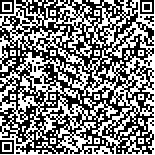| 丁江华.EGFR L858R突变型晚期非小细胞肺癌的分子生物学特性及治疗策略[J].肿瘤学杂志,2022,28(5):410-415. |
| EGFR L858R突变型晚期非小细胞肺癌的分子生物学特性及治疗策略 |
| Molecular Biological Features of Advanced Non-small Cell Lung Cancer with EGFR L858R-mutation and Its Treatment Strategies |
| 投稿时间:2021-09-26 |
| DOI:10.11735/j.issn.1671-170X.2022.05.B012 |
|
 |
| 中文关键词: 非小细胞肺癌 表皮生长因子受体 L858R突变 治疗策略 |
| 英文关键词:non-small cell lung cancer epidermal growth factor receptor L858R mutation treatment paradigms |
| 基金项目:江西省教育厅科研资助项目(190901) |
|
| 摘要点击次数: 1019 |
| 全文下载次数: 301 |
| 中文摘要: |
| 摘 要:表皮生长因子受体(epidermal growth factor receptor,EGFR)基因突变是非小细胞肺癌发生率最高的驱动基因突变类型,其中以外显子19缺失突变和L858R突变最常见。相比外显子19缺失突变,L858R突变型NSCLC具有独特的分子生物学特性,如肿瘤侵袭性更强、更易发生伴随突变、对EGFR-酪氨酸激酶抑制剂(EGFR-tyrosine kinase inhibitor,EGFR-TKI)药物敏感性更差。因此,L858R突变被视为与 外显子19缺失突变完全不同的另一种亚型。针对L858R突变型晚期NSCLC治疗方法包括EGFR-TKI单药及其联合化疗、抗血管药物以及免疫治疗等。其中,仅第二代EGFR-TKI达科替尼获得无进展生存期(10.9个月)与总生存期(25.0个月)的生存优势,TKI联合化疗取得无进展生存时间优势但无总生存时间获益,而厄洛替尼联合贝伐珠单抗的无进展生存时间最高(19.5个月)。总之,与外显子19缺失突变相比,L858R突变型NSCLC需要采取不同的治疗策略,厄洛替尼联合贝伐珠单抗可作为首选方案,而免疫治疗仅作为EGFR-TKI治疗失败的后线方案。 |
| 英文摘要: |
| Abstract: Epidermal growth factor receptor(EGFR) mutation has the highest incidence in driver genes of non-small cell lung cancer(NSCLC), and the deletion on exon 19 and the L858R substitution on exon 21 are most common. Contrast to exon 19 deletion, L858R mutation is of special molecular biology, including more aggressive behavior, increased incidence of concomitant mutations, less sensitivity of EGFR-TKI. Thus, NSCLC with L858R mutation is deemed as a subtype completely distinct from that with exon 19 deletion mutation. The treatment strategies for patients with L858R mutation include EGFR-TKI monotherapy, EGFR-TKI plus chemotherapy or antiangiogenic therapy, and immunotherapy. For EGFR-TKI monotherapy, only dacomitinib achieves the benefit of progression free survival (10.9 m) and survival(25.0 m). Combination of EGFR-TKI with chemotherapy prolongs the PFS but does not exhibit advantage in OS. Erlotinib plus bevacizumab achieves the highest progression free survival of 19.5 m so far. In summary, for advanced NSCLC patients carrying L858R mutation, the combination of erlotinib with bevacizumab is preferable, and PD-1 inhibitor therapy may be a potential option following failure of EGFR-TKI treatment. |
|
在线阅读
查看全文 查看/发表评论 下载PDF阅读器 |